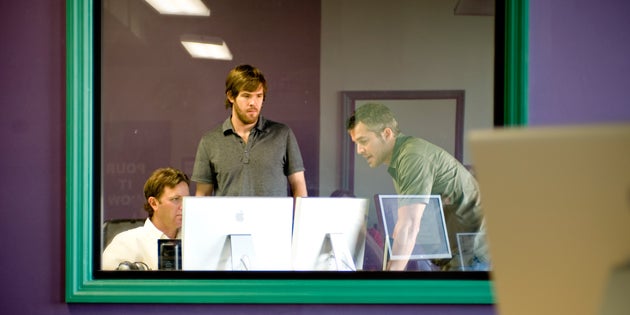College of Charleston alumna Laura Willoughby ’98 knows all about the sometimes-circuitous career paths of entrepreneurs – the rejections, the empty refrigerator, the sleepless nights and the pride-swallowing necessity of seeking help (and seed funding!) from family, friends and strangers.
A communications major and international studies minor, Willoughby has worked in print and television journalism – including a stint writing obituaries – and has owned her own boutique public relations firm. She eventually found her niche helping non-profits boost their memberships and public profiles.
In January 2014, she was named executive director of the Chesapeake Innovation Center, a technology incubator in Maryland. She now spends her days helping others realize their dreams.
“Navigating the world of a start-up takes passion, energy, drive, zeal – and lots of chutzpa,” says Willoughby.
Think you have what it takes to create the next must-have app, launch tomorrow’s tech craze or bring a breakthrough innovation to market? Here, Willoughby shares six telltale signs that you’re ready to become a tech entrepreneur:
1. The idea of sleepless nights, fast action on new ideas, collaboration and hard work for little (or no) pay fills you with excitement.
It’s true – the tech industry is still the most energized, enlivened and exciting industry around. And successful entrepreneurs tap into that energy to turn ideas into products and bring their skills to a start-up. It takes passion, dedication, enthusiasm and, most importantly, planning, patience and tenacity. If you have these traits, the start-up scene might just be for you.
2. After four years of college, you still like Ramen Noodles.
This is good because you might be eating them – and other budget foods – for a few more years. Unless you are one of the lucky few who quickly lands funding, most of your financial resources will go toward building your business. Consider it a short-term sacrifice for the long-term fulfillment of a dream.
RELATED: Read about a computer science major at the College who raised $10 million for Yik Yak app.
3. You’re not afraid to use your friends, family and connections.
While crowdfunding success stories abound, many entrepreneurs will raise capital by more traditional means. In the world of start-ups that means fundraising from the “Three F’s” – Friends, Family and Fools.
Start learning now about the world of investors and funding, and start practicing your “perfect pitch” to make to the investment community. Meanwhile, come to terms with the fact that you will be asking friends, family and acquaintances for help, insights, ideas, feedback and seed funding.
Be open to the counsel of others and incorporate it into your business plan. If you hear the same piece of advice or suggested change from three or more people, there’s probably a good reason.
4. Hearing “no” makes you think “yes” is right around the corner.
Some people will love your business idea. Many more will be non-committal. Some will be downright naysayers. Whether you’re trying to find initial funding or approaching potential customers, you’ll hear “no” more than you’ll hear “yes.” Successful entrepreneurs turn rejection into motivation.
5. You’re not afraid to admit what you don’t know and willing to partner with others who do.
Ultimately, you’ll want to build a strong management team that includes a visionary leader, a strategic and tactical thinker, a technologist and an operations expert. Find a mentor. You don’t have to ask that person to be your mentor. Just identify someone you think would have good insights and invite them to talk over coffee.
Fill in gaps in your knowledge by reading books on entrepreneurship and by attending networking events and professional conferences.
6. You’re ready to make connections and network before you graduate.
Any successful CEO will tell you, it takes connections to grow an idea into a thriving business. Get involved in the regional business scene before you graduate, and you’ll be a step ahead by the time you earn a degree.
Seek out the services and resources provided by incubators and accelerators in your region and figure them into your business plan. Willoughby says that start-ups typically have an 80 percent fail rate, but virtually the opposite is true for start-ups that use an incubator program, which have a 70 to 80 percent success rate.
Here is a list resources for entrepreneurs and starts-ups in the Charleston area:
- The Center for Entrepreneurship in the School of Business at the College of Charleston.
- The Charleston Metro Chamber is a great starting point.
- The Charleston Digital Corridor offers a variety of resources for tech entrepreneurs.
- The South Carolina Technology Alliance is the state’s association for technology companies.
- The Harbor Accelerator is a business accelerator program based in Mount Pleasant.
- The SC Launch program helps grow new technology companies in South Carolina.
- The Association for Information Technology Professionals has a chapter in Charleston.
Laura Willoughby can be reached at ljwilloughby@gmail.com.







